Welcome to a new kind of article that is designed for creators and publishers this year: Creator Roundtables. We aim to partner with creators in the comics, manga, and webcomics industries to discuss important topics and raise awareness around the successes - and struggles - creators face in their work and everyday life.
We've had the pleasure of working with the team at Catalyst Press in the past, and I'm delighted that they were interested in organizing a roundtable about an incredibly important initiative, which is supporting African creators through #ReadingAfrica Week.
I now hand things over to Ashawnta Jackson, Marketing Manager at Catalyst Press, to chat with three incredibly talented African illustrators.
Each year during the first full week of December, Catalyst Press hosts #ReadingAfrica Week, a celebration of African literature. All week long, authors, writers, publishers, readers, and anyone who loves books. We held this conversation during the event, though we weren’t able to share it at the time. Lucky for us, there’s no expiration date for discussing African literature and illustration. And we’re hoping to have many more of these conversations throughout the year.
We chatted with three African illustrators— Shofela Coker, Mark Modimola, and Karen Vermeulen— to learn more about the ever-growing comics and illustration scene across the continent. This conversation has been edited for length and clarity.
Karen Vermeulen is an artist, illustrator and teacher living in Cape Town, South Africa. Her work is happy, uplifting and quirky. When she is not busy with some creative project, she is probably playing with her cat, Sir Henry. You can find more of her work at www.karenvermeulen.com.
Mark Modimola is a South African artist based in Johannesburg working in painting, digital art and drawing. His works explore the rhythms of African identity, carrying a spirit that emphasizes the supernatural experience of blackness.
Known for his surreal illustrations, his collaborations with Jaguar for the 2021 #GiveHerACrown campaign, the award winning 2021 South African graphic novel, ALL RISE and his mural for American Express after winning the Graphic Arts challenge in 2023. Modimola's work explores natural themes in the search of a deeper connection between Africans and nature. He is inspired by nature's persona and it's impression on the human spirit.
The Design Indaba 2020 Emerging Creative is a showing artist with USURPA Africa Gallery, exhibiting in partnership with Samsung. Recently Modimola participated in a panel discussion hosted by IQOQO at the Zeits Mocca museum in Cape Town. Modimola's work has been exhibited in South Africa and in the USA, with his work now featuring in public and private collections. The young artist remains a growing and vibrant presence in the international art community.
Shofela Coker is an illustrator and director born and raised in Lagos, Nigeria. In 2005 he moved to Memphis, Tennessee, attended the Memphis College of Art and graduated with a BFA in illustration. He began his career as a character designer and digital sculptor for video game studios at Activision and Sony. He worked as an art director for Jam City San Diego from 2016-2019. As a freelancer his clients have included Disney, Netflix, West Studio, Oddbot, Titmouse and Triggerfish Studios. You can find more of his work at shofcoker.com.
What brought you to illustration? Who are some of the artists that inspired you to do this work?
Karen - As a kid, I spent hours drawing and pouring over picture books, and that just never went away! Then, I studied to be an art director in advertising, and since I couldn’t afford stock photos or shoots for my college projects, I just illustrated them. And I’ve been illustrating ever since. As a young creative, I was very inspired by the work of Helen Dardik and Gemma Correll.
Shof - An early love for storytelling and collaborating with brother lead me down this path in the first place. Artists such as Sergio Toppi, Miyazaki, Alex Toth, and Bruce Onobrakpeya, among a few are guiding lights for me.
Mark - I think as children we all begin to develop our natural communication styles which pull us towards our most expressive self. For me, that became drawing. As a kid, that’s how my thoughts found a voice. Children’s books, novels and manga have always been a huge inspiration. I would spend breaks and afternoons in the libraries exploring the world.
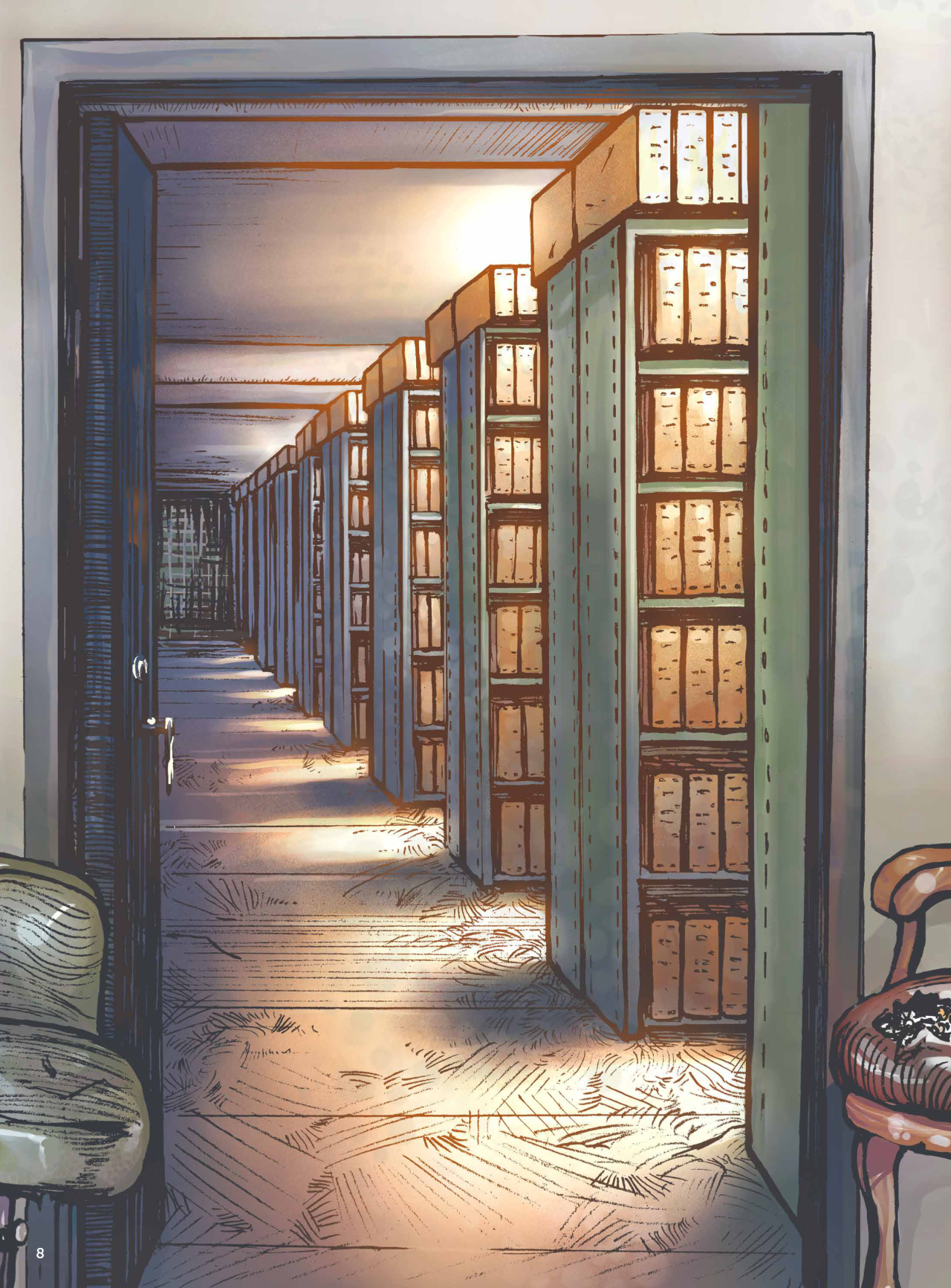
All Rise: Resistance and Rebellion in South Africa page 12.
How would you describe your style?
Karen - Colourful, happy, full of humour, whimsical and quirky.
Shof - I'm drawn to graphic mark making styles that borrow from printmaking sensibilities. I focus a lot on color and light as a manner to express energy and tone in my work. Aesthetic and philosophical approaches from Southwestern Nigeria influence my hand- craft practices such as adirè printmaking and wood sculpture.
Mark - Emotive, sensational, vibrant and lively
What’s the animator/illustrator community like in your area?
Karen - Cape Town, where I’m from, is a very creative city, and it’s also not big. So even though everyone does their own thing, we all know of each other and cross paths. Recently, I did a Book Dash event, which is a charity that gets creatives together to make a picture book in a day! We all work together, in teams in one big hall and it was surprising to see so many familiar faces and names.
Mark - In Johannesburg, it’s all about culture. Joburg is where Africa meets and so there is not only a creative African flare to our illustrators but a global reach. Meaning, we have our fingers on the pulse and we set the tone. The diversity and hustle make for a dynamic, robust group of artists, never short of ideas.
Since this is #ReadingAfrica Week, let’s talk about Africa. Do you see any uptick in readers/viewers specifically seeking out African stories/creators?
And to build on that, what do you think of the idea of “African stories”? This can be without nuance, and lead people thinking of work from Africa as a genre, rather than African creators making work that reflects their points-of-view across genres. But on the other hand, does positioning “African stories” as something unique and a specific kind of work, help it on the world stage?
Karen - I think both sides should be represented. I’d love to see more picture books set in Africa and with diverse characters, and I’d love to see more stories about Africa, but also just ‘normal’ everyday stories that happen to be set in Africa. For instance - not a visual ref, but one of my favourite books is My Sister the Serial Killer by Oyinkan Braithwaite it’s set in Nigeria, but it’s just a really funny, clever, great book, and the cultural landscape gives it flavour without it being a story about being African. I love that. And for me, as a South African, it’s so refreshing to read stories that I can relate to and recognise cultural references. Because even though it’s different African countries, there are commonalities and we have a lot of Nigerian immigrants here.
Shof - I do have Pan African sensibilities and an affiliation to Africanfuturism. I don't believe this nullifies my personal voice as an artist. I enjoy engaging with these concepts and movements because I believe they help further a needed conversation and shared direction.
I would encourage anyone to watch the Triggerfish produced Kizazi Moto series on Disney+ which I had the privilege of directing a short film in the series of ten stories. It's a nuanced vision of African futures that shows various countries' perspectives and unique individual voices of the creators. Similar themes and motifs also run through these stories and I don't believe at all that positions them as one monolithic narrative.
Mark - Absolutely. Over the past five years there have been exponential changes in the digital and media landscape of Africa. Africa is online. Therefore the African child, hungry to discover and grow beyond their environment, is no longer restricted to information or the power to imagine. The internet and books provide a rich platform from which a newer, younger reader can benefit.
I also believe there is an appetite for African stories. We Africans have spent the majority of our lives consuming western and some eastern media, it is time for us to consume African media. We as a generation have digested a great amount of the other’s narrative and now seek to explore and express our own narratives. Over the years there have been calls for counter narratives which expand all of our understandings of being black, African and in the 21st century. Something that grants the African viewer/creator an opportunity to write their own story.
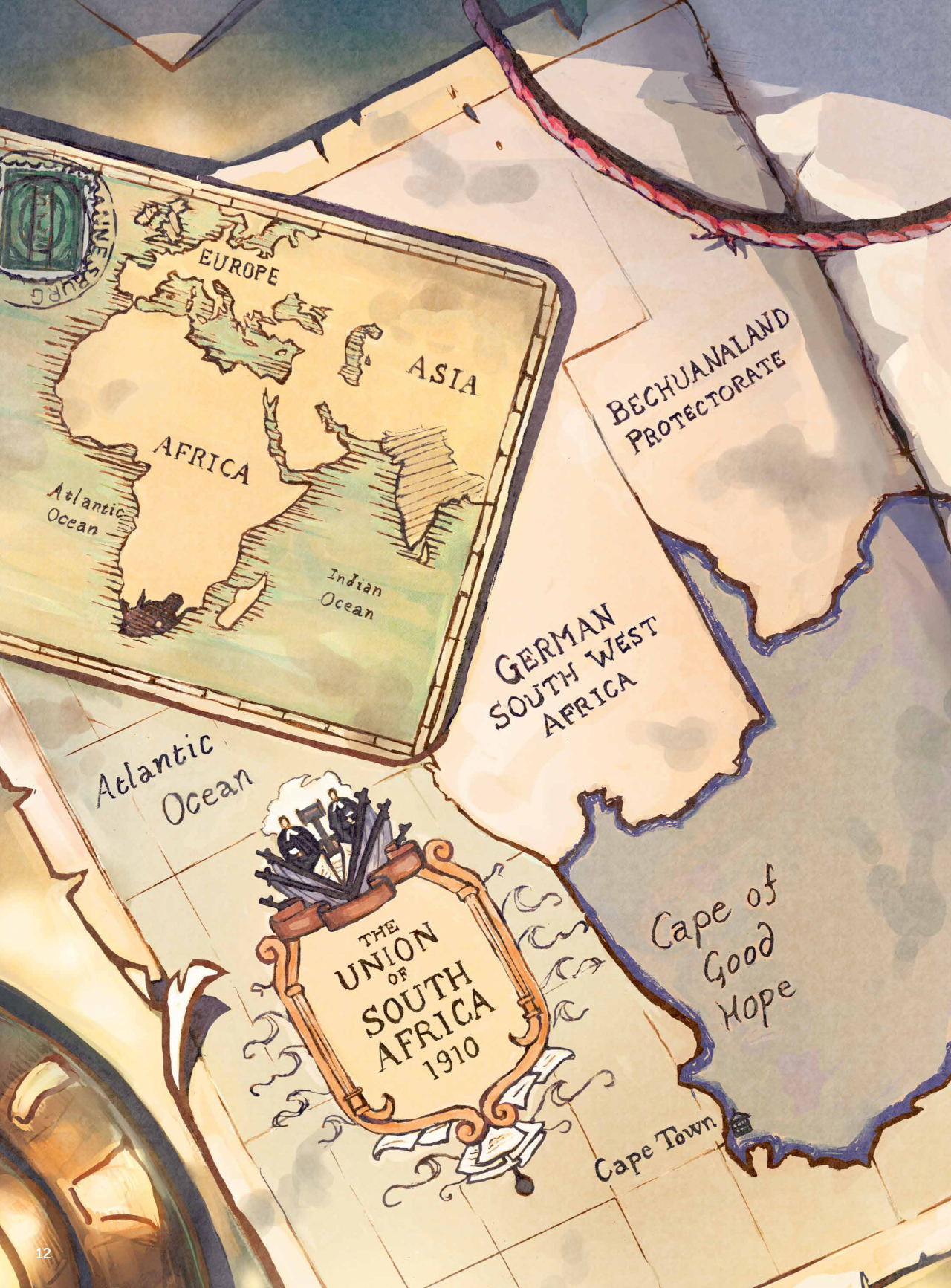
All Rise: Resistance and Rebellion in South Africa page 16.
What are some of the challenges you see in comics publishing?
Karen - For me, the challenge is financial. The nature of this work is that it takes a long time to produce and it’s hard to find the time between paying jobs to work on something that is hopefully going to earn money in the future.
Shof - I would like to publish work in Nigeria more broadly in comics, but the infrastructure and distribution are still developing. It's challenging to find the right partners in that part of the continent.
Mark - I think nowadays because of social media access, its range and the lifespan of a piece of media, we have to compete with an over-stimulated and saturated audience. This presents many challenges. The financial security of any project is also a challenge in the age of short attention spans and so the time one takes to create media needs to be compensated fairly regardless of the impact of the media.
Karen, you’ve used comics as a medium for memoir. And Mark, your work on All Rise is also telling a non-fiction story. Is there a difference in the way you approach fiction vs. non-fiction?
Karen - No, I don’t think there is. One is just based on real events, and the other starts with more imaginative play and ideation, but after that, it’s the same.
Mark - Not really, I believe the power lies in the story being told. The story needs to be captivating whether it’s true or not.
There’s always this big debate about whether comics are reading. Obviously, here at Catalyst, we think books are books, and we always love getting a book into someone’s hands. How do you respond to critics who say that comics/graphic novels are “real” books?
Karen - People can think whatever they want, but I don’t think it is encouraging to judge unconventional books. It doesn’t matter how you ingest a book. At the end of the day, you open someone’s mind, broaden their world and hopefully spark something positive in them. And if you’re going to say this doesn’t count, and that doesn’t count, it might deter readers, and they end up missing out. And I think visuals add something extra and teach a reader something that they might not learn from a book with words only. And a lot of people have problems with focus or they are time-stretched, and for those folks, graphic novels and audiobooks make books more accessible, and that is a great thing. Books are books!
Shof - I don't mind at all that comics are still considered lowbrow in most parts of the world. It's part of what makes them powerful and pervasive. If there is someone with a tentative interest or half a critical mind, I'd recommend they read Marjane Satrapi's Persepolis or David Mazzucchelli's Asterios Polyp.
Mark - Well a book is a holder, a place for a story or information to exist. The format of the book is a functional preference. That a story or Information should exist in both image and text is not out of the ordinary. From ancient Egypt to Instagram, the skill of reading has meant the deciphering of symbols for understanding, whether they be image or written. Since one of the first written forms was pictographic in its essence, we can observe that image and text have always existed together in narrative. Therefore we should appreciate the range of reading instead of reducing it.
What advice would you offer someone wanting to get into illustration?
Karen - Draw a lot, draw every day if you can and don’t be discouraged when your illustrations are terrible or you don’t know what your style is. You learn by doing. And then put your best work out there, network, tell everyone what you do, and show your illustrations to everyone. You have to be passionate about it because it is hard to make a living from it. So you need to be really sure that this is what you want. For me, it is who I am. I can’t imagine not drawing. And if that is how you feel, then you will get better and better, and you will get great projects and opportunities along the way. Just keep going!
Shof - Study lots of art history- contemporary and historic, world and local. It helps your problem solving, creative approach/ voice and eventually your craft (or at least it helped mine). A lot of illustration is communicating complex or simple ideas that many artists have approached before you.
Mark - First, draw. Draw what you see, what you think, what you feel. Draw so you link your mind to your hand. Drawing will expand your mind's eye into your voice. There is no right or wrong way. Only that you draw until it becomes your language, your own particular way of seeing the world.
And to continue that thought, “illustration” can mean so many things— from books to greeting cards, is there any divide between these worlds in the illustration community?
Karen - I don’t think there is. I think there is a bit of a divide between ‘art’ and ‘commercial’ illustration. Which, frankly, I'm not a fan of. You look through a graphic novel or a kids’ picture book at these incredible, beautiful illustrations that tell a story, and to me, that is art.
Shof - I think illustration constitutes anything you're communicating ideas through visuals.
Mark - Not really, to illustrate means to explain and so there are a number of ways one can explain something. That something will drive the explanation. As the philosopher Marshall McLuhan says, “the medium is the message.”
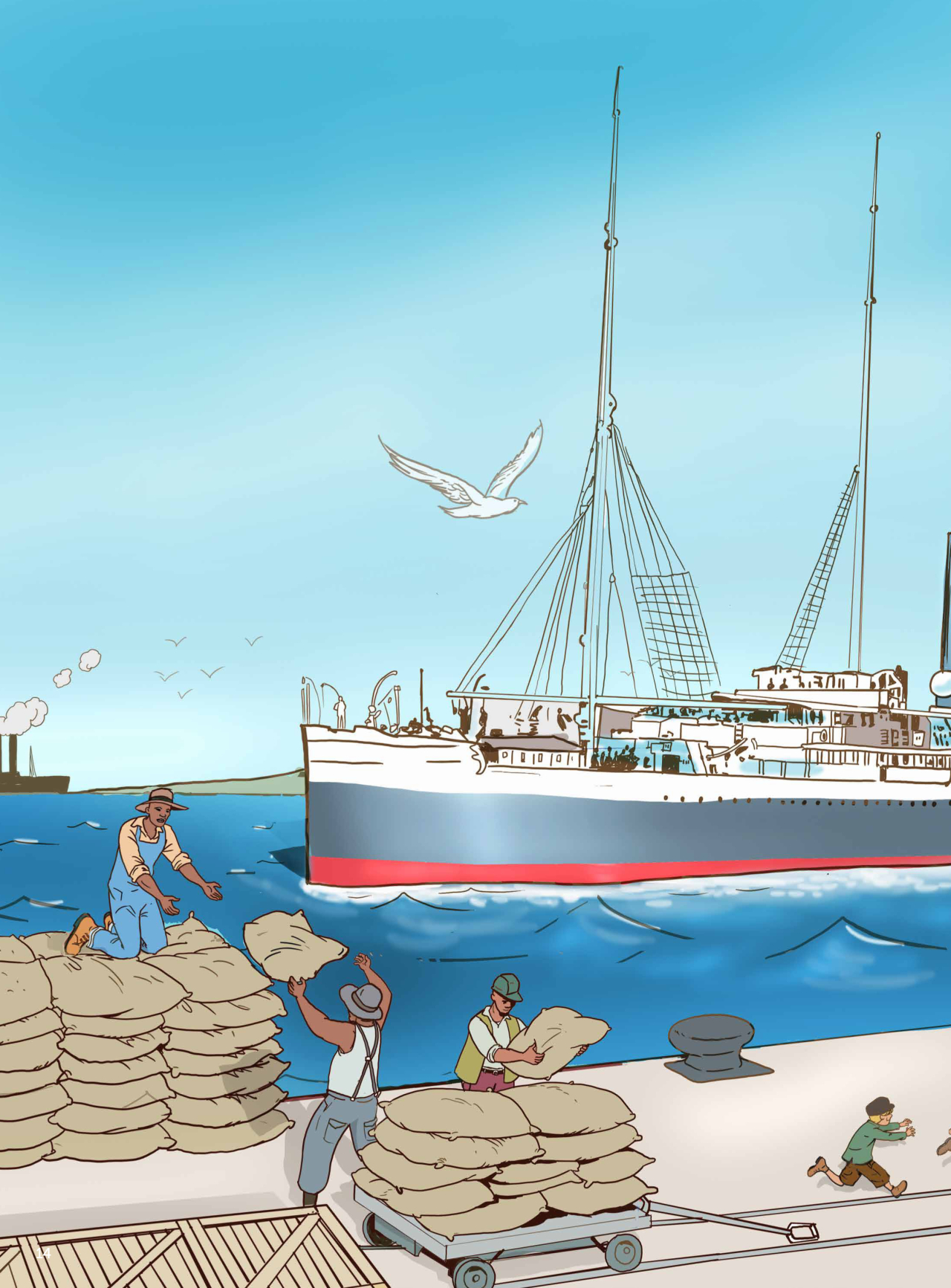
All Rise: Resistance and Rebellion in South Africa page 18.
What things are the African illustration/animation community getting right? What changes would you like to see?
Karen - I think there is a lot of beautiful, fresh, unique work on the continent. And that there is an openness to interesting work, which is great. What I would like to see is more opportunities, better pay and giving more artists a chance. I see some artists who do great work (or not-so-great work) but they look the part with a strong social media, and that gets them kinda famous and they get all the opportunities because now, they’re a safe bet financially, and you end up seeing the same artists work over and over when there are so many great artists who desperately need the exposure!
Mark - We are forging our own canon and visual language separate from the West and the East. We are also exhibiting more trust and appreciation for our own art, culture and way of expression. I would like to see more investment in artists to create better representation, more diversity and skills development.
What are you currently working on?
Karen - I’m working on my graphic memoir, called Good Luck to Us All, which is a collection of funny personal (sometimes very personal!) essays. And juggling that with some client work, a beautiful picture book about a little girl in Kenya that I’m currently wrapping up and a few bits and bobs, a book cover, a kid’s picture book I’m doing with a grandmother that is an illustrated poem about the grandkids. I’m also in the process of setting up a Procreate digital illustration course for February next year. The freelance juggle is real!
Shof - I'm creating a new comic series with my brother, Shobo and developing another animated short based on a Nigerian myth.
Mark - I’m working on a series of artworks that explores Africans working in a sacred space and what we do in those spaces for a show next year.
Where can people find your work?
Karen - I’ve been terrible at updating my website or keeping up with my Instagram! But trying to get back into it. But you can find my work at www.karenvermeulen.com, and I’m on Instagram at Karen_vermeulen_illustration where you will also find lots of pictures of my cat, the meow-jestic Sir Henry Babaganoush, the Bohemian. Definitely go check him out!
Shof - You can find me at shofcoker on Instagram and my site at shofcoker.com.
Mark - I’m on Instagram at mark_modimola and updating my site markmodimola.com.
Thanks to Catalyst Press, Ashawnta, Karen, Shofela, and Mark for coming together to celebrate #ReadingAfrica Week and participating in this roundtable.
Be sure to check out the work of these incredibly talented illustrators at the links above. You can explore books by Catalyst Press here on GlobalComix. Don't forget to give them a follow!
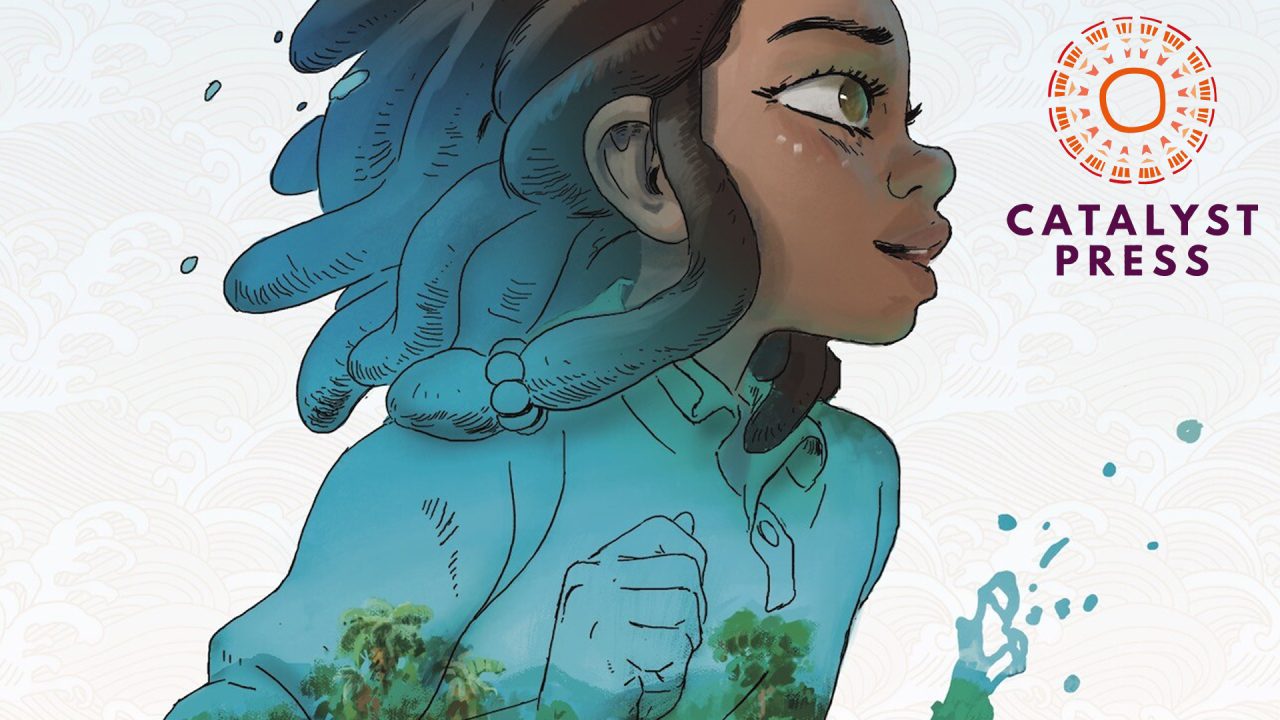
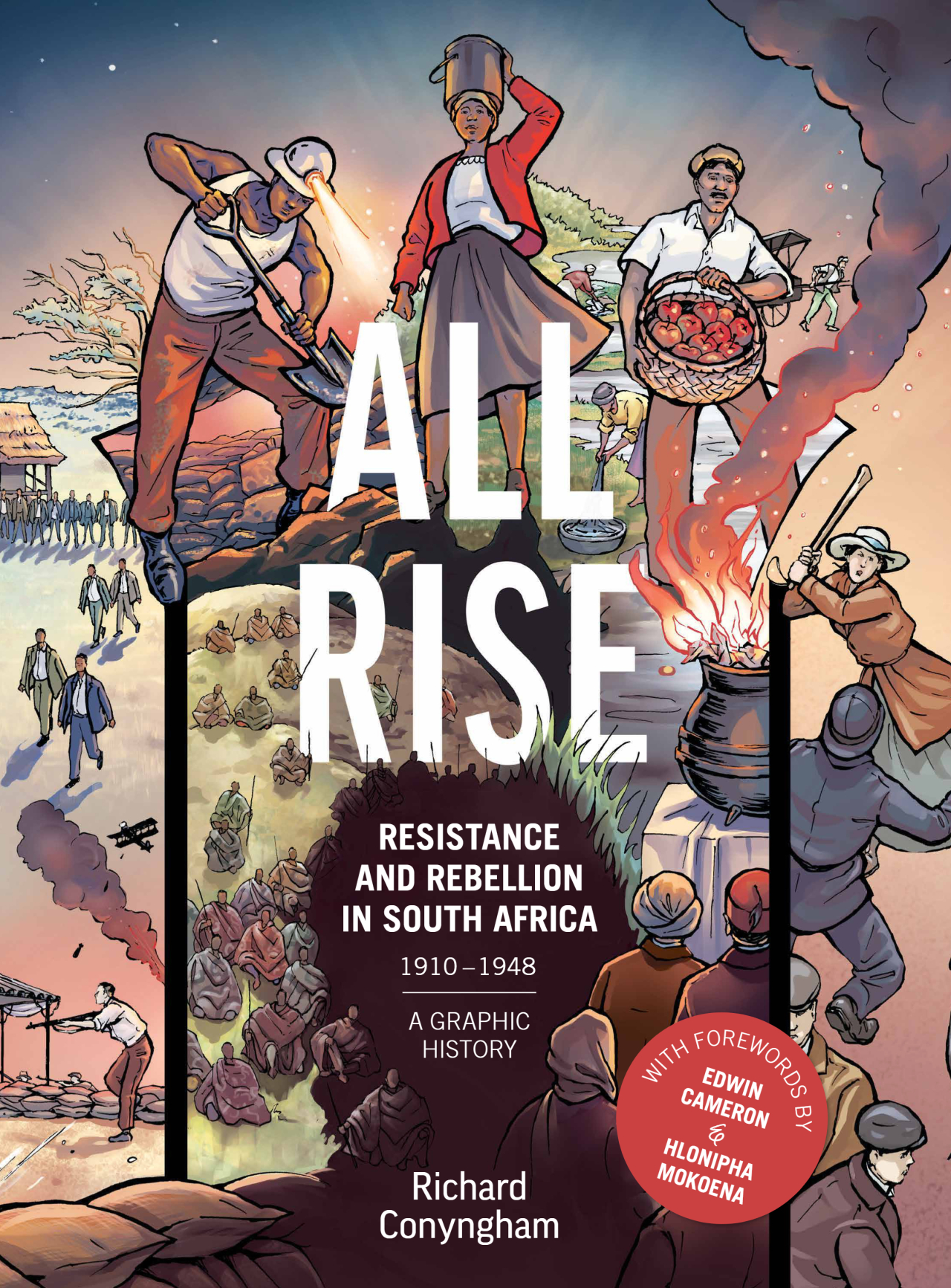
zzaya 2 years ago
s/book/title/AAGEN0"00235/ gr<xxx> x